A delicious chocolate alternative that’s kind to the planet
Hailing from Denmark, THIC (This Isn’t Chocolate) promises a sweet future for us all.
1 August 2024
Share this exclusive content from Saladplate
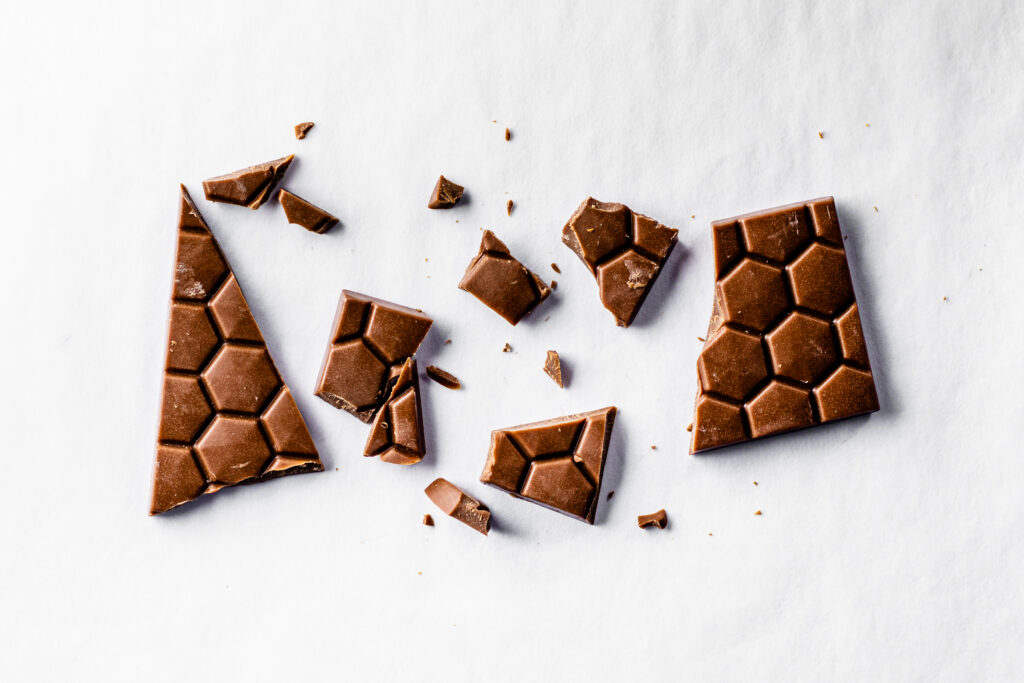
Image Credit: THIC
When is chocolate, not chocolate?
When it’s made with leftover brewers’ grain – without cacao beans or cacao butter in sight.
THIC (This Isn’t Chocolate) is a sweet chocolate alternative made using a waste food by-product from the brewing industry.
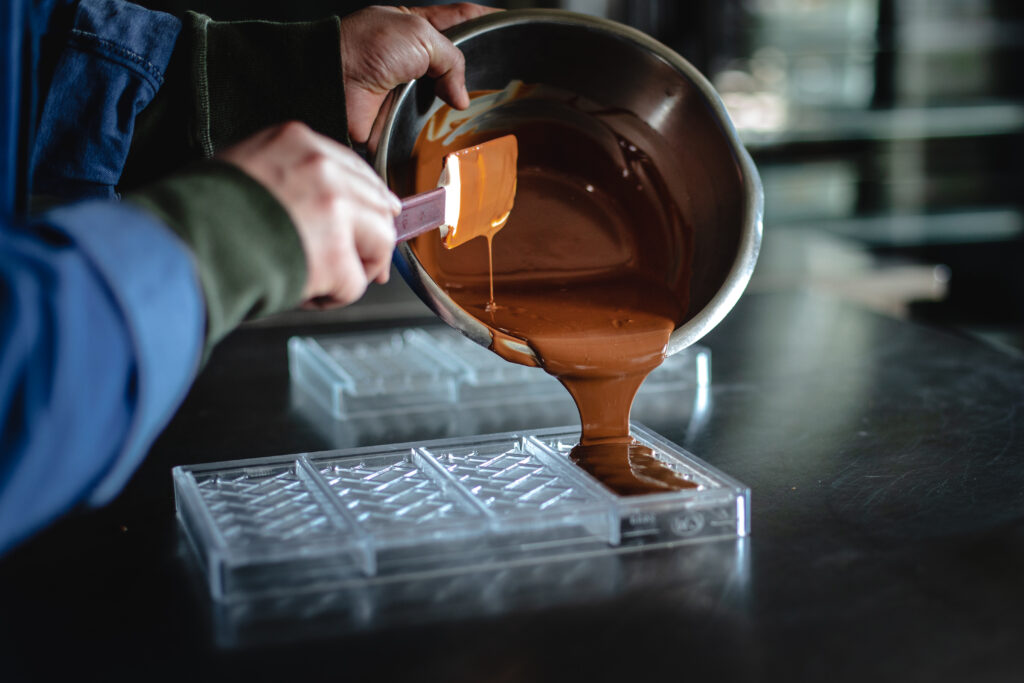
Image Credit: THIC
Created in Denmark by innovation company Endless, THIC is their maiden project and is developed by a group of chefs who want to see a future for chocolate that doesn’t include deforestation through the use of palm oil.
Growing cacao causes deforestation and leads to accelerating climate change. According to a study by the University of Edinburgh in the UK, a 40-gram bar of milk chocolate carries a carbon footprint of around 200 grams. The report adds that in the UK alone, some 18,000 tonnes of chocolate and sweets are wasted each year – creating 90,000 tonnes of greenhouse gas emissions.
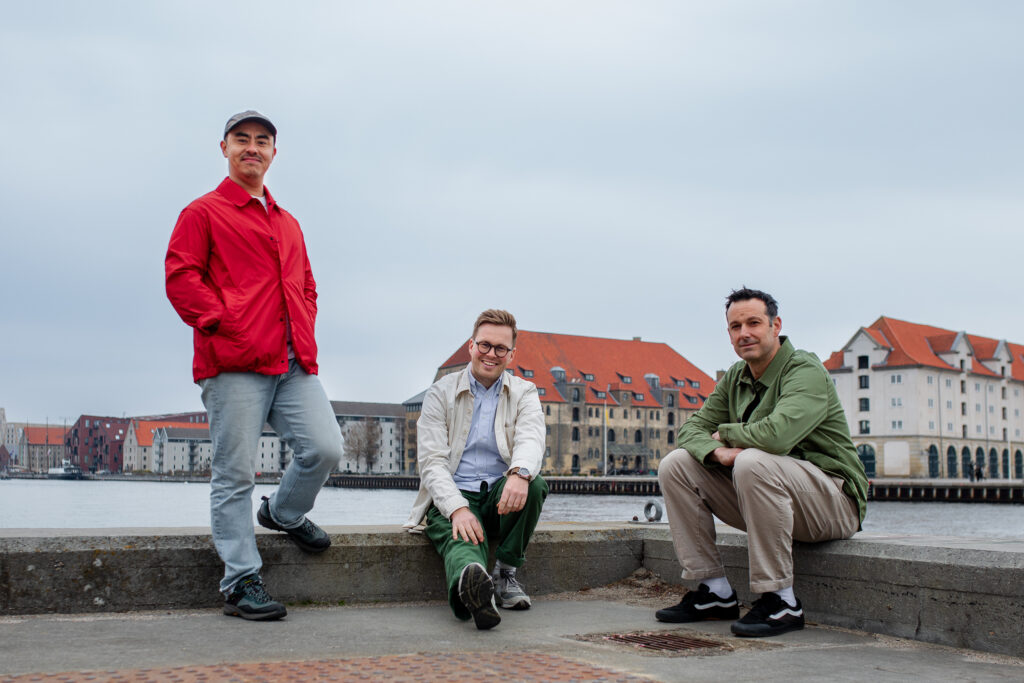
Image Credit: Endless Food Co
The team at Endless: Matt Orlando, Maximillian Bogenmann, and Christian Bach, all met at Matt’s Amass restaurant in Copenhagen. They use upcycling technology to help safeguard the future of chocolate while tapping into overlooked resources.
“The whole core of what we’re doing is steeped in sustainability.” says co-founder Max. “Chocolate was a project that we explored in our restaurant days when we were trying to be as local as possible.”
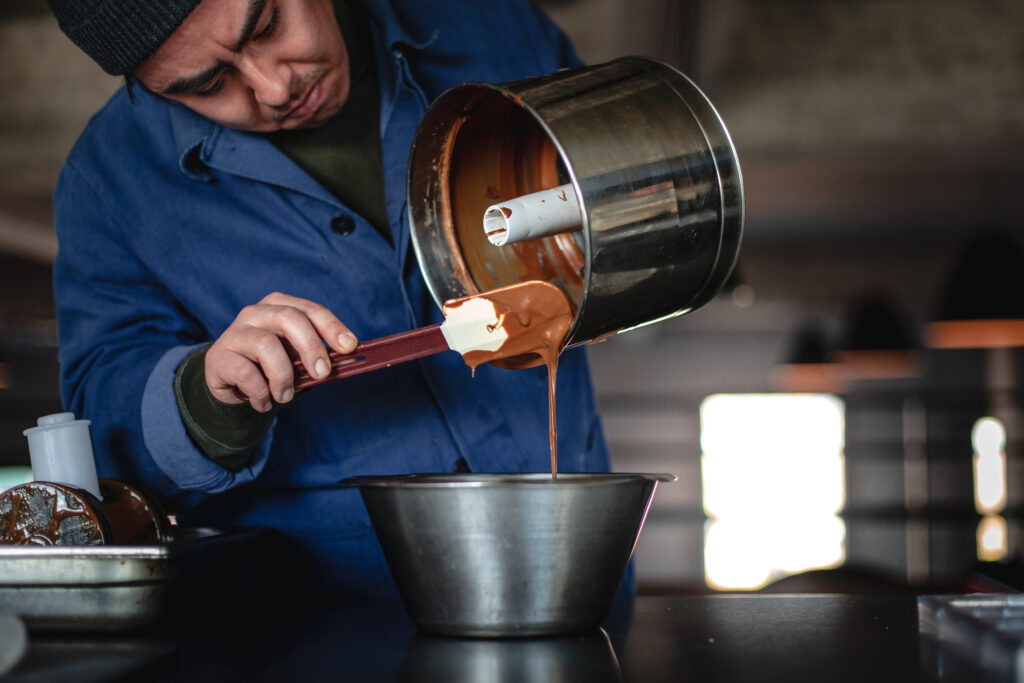
Image Credit: THIC
Many sustainable food solutions in the restaurant were built around using kitchen waste streams, so when it came to producing chocolate on a larger scale, the team decided to try to build the process themselves.
“We were connected to a brewery that was producing lots of spent grain, which is primarily barley. This is a giant sidestream worldwide: 40 million tonnes are produced globally. The highest value proposition for the food system at large is to integrate it back into the system, which played hand in glove with our upcycling mentality.”
Today the brewers’ spent grain primarily comes from Nørrebro Bryghus, one of Denmark’s biggest and most well-established craft beer breweries.
THIC is an attempt to harness latent flavour and address long-standing systemic issues within the chocolate industry – by creating a delicious product with a genuine sustainability story. Early independent studies show that this product is more sustainable (in terms of greenhouse gas emissions) than its conventional counterpart.
“Sustainability and all of those upsides are really important to us. To consumers and companies, that’s almost secondary; if it doesn’t taste good, nobody will buy it. Flavour will sway consumer choice. And that means we have to be pretty sure that what we’re making is super delicious,” adds Max.
While making chocolate for a single restaurant is quite efficient, scaling up comes with challenges. “Until three months ago, we were producing pretty low lab-scale amounts on these countertop melangers traditionally used in chocolate,” says Max.
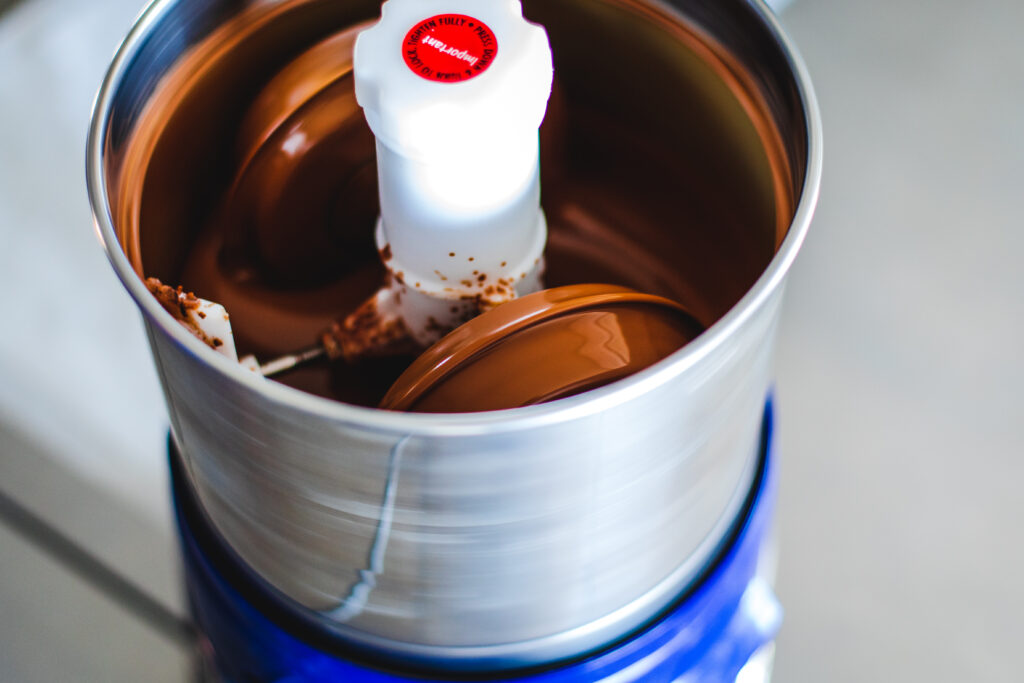
Image Credit: THIC
The melanger is a machine that is used to grind and refine chocolate ingredients, to create a smooth texture.
“I think we have made 350 to 400 different variations. I wish we had some of the prototypes; you can really see the difference. In the beginning, it tasted like cardboard. It was a dusty kind of dirt – nothing resembling chocolate.”
Endless creates a powder based on the spent grain using low levels of bioprocessing. This powder is then integrated into a traditional chocolate production setup and mixed with sugars and fats in large melangers, going through a tempering line before being moulded.
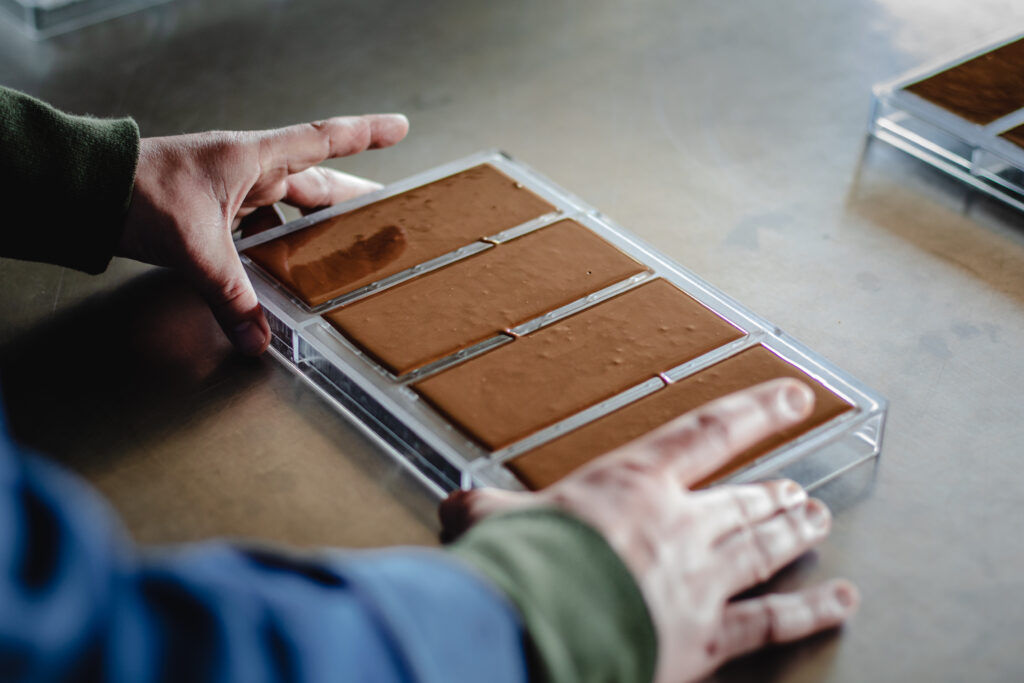
Image Credit: THIC
Production is now upwards of 250 kilos per run. “In the next year, we’re looking to produce between three and five tonnes a month. That would be a pretty big success for us,” said Max. Currently shipped across Scandinavia and throughout the EU, the dream is to make THIC available globally.
“There’s another model where we can build a pre-processing centre to make powder on a larger scale in Denmark. If someone in, say, Australia wants to make an alternative chocolate, then we can send them the powder, and they can integrate it into their existing chocolate production line. If they want to use coconut fat or coconut sugar, then they can – and it makes it a little bit individual based on where it’s produced.”
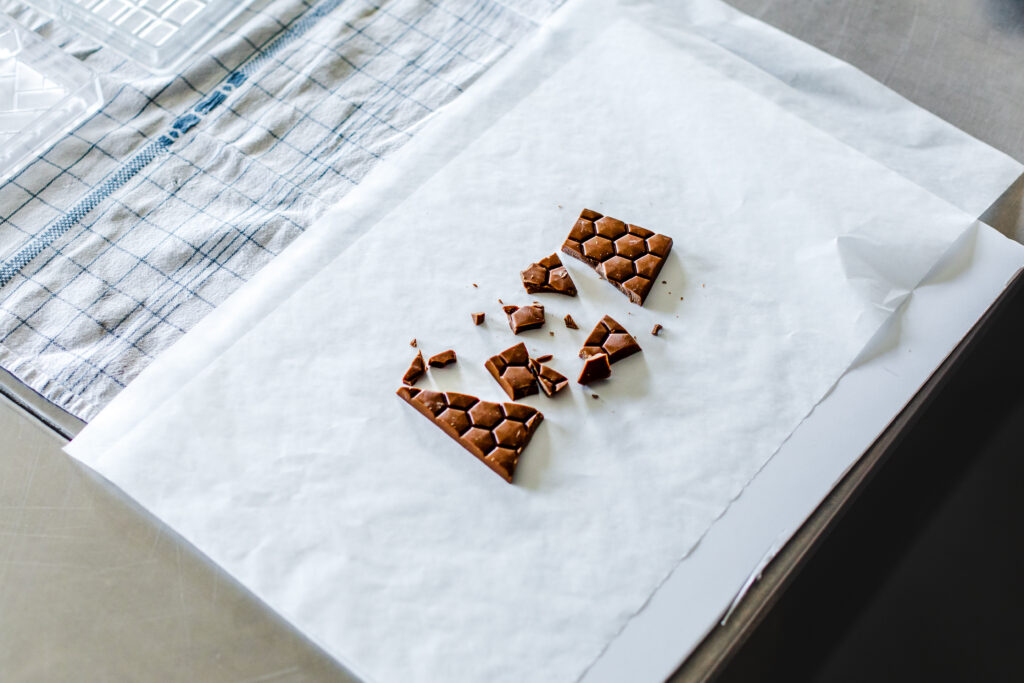
Image Credit: THIC
“We don’t want to be an artisanal product. If we want to make an impact on a large scale, then we need to scale. If one day we are coating every Mars bar, then I would be overjoyed. In the next year, we will take some major steps to put ourselves on that path.”
Max hopes that only the business will scale up. “I’ve been eating more chocolate in the last year than ever. I try to restrain myself because there is chocolate everywhere. Twelve-year-old me would have been really excited; at 35, I have to be careful!”
At the time of publishing this article, THIC, the plant-based confection solution made with upcycled ingredients was pending patents.
Author: Alison Marshall
Alison Marshall is a seasoned journalist, writer, and editor with over 30 years of experience in print and digital media across global markets covering sectors from hospitality to finance. A Brit by birth she has lived in Singapore since 2008, a country which continues to fascinate. In her free time, she enjoys cooking and cocktails and loves a local market wherever she travels.



